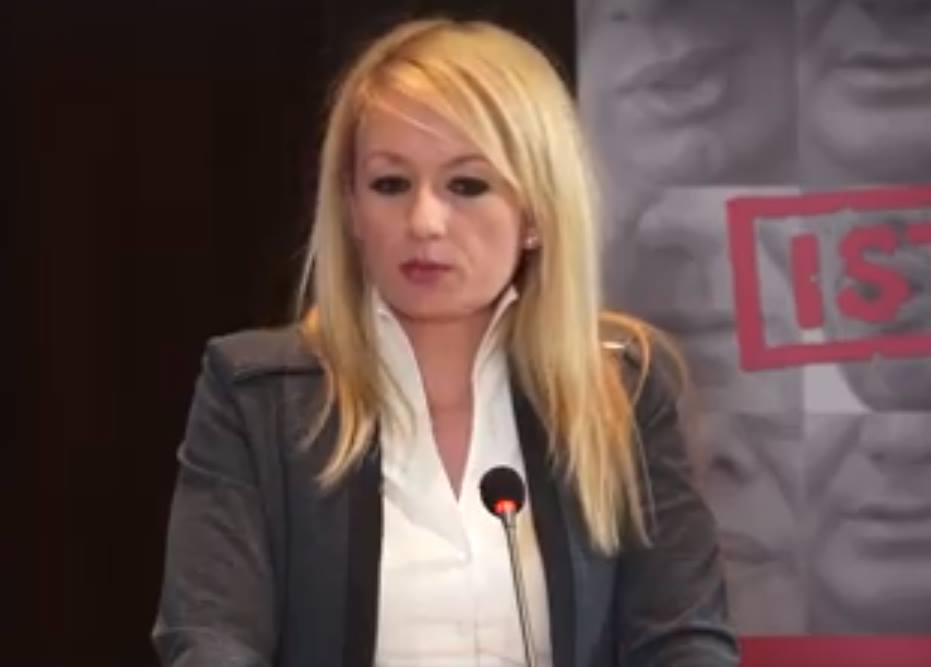When the Aggressor Becomes an Investor: Serbia on the Brink of Moral Collapse
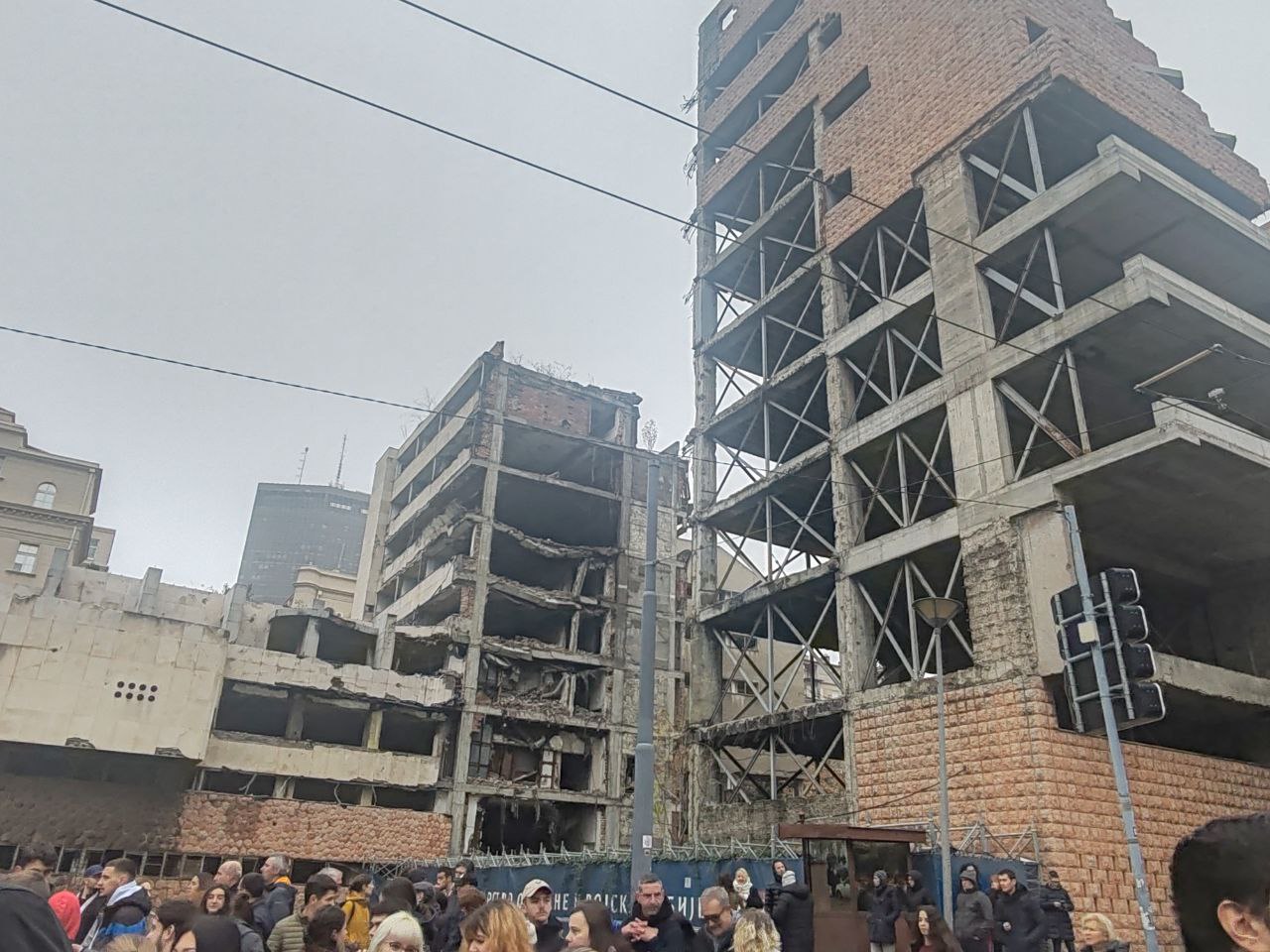
By Dragana Trifković, General Director of the Center for Geostrategic Studies (Serbia)
In a word, the situation in Serbia can be described as “absurd”: a system in which nothing truly functions, yet everything formally appears to be in order. Society is entrenched in a prolonged phase of discontent, with numerous unresolved and accumulated problems continuing to multiply. This state has emerged through years of recurring, increasingly frequent protests that have failed to produce any substantive political change or institutional resolution. And with an even more dynamic and long-lasting self-deception.
Reconstruction Without Public Oversight: A Political Deal That Erases the Traces of Aggression
The latest decision to provoke strong public reaction concerns the demolition of buildings damaged during the 1999 NATO bombing, located in the very heart of Belgrade. These are the former Ministry of Defense and General Staff buildings, which stand as symbols of the injustice inflicted by NATO’s aggression and the resistance mounted by the Serbian people. Situated directly across from the Serbian Government and Ministry of Foreign Affairs buildings, these ruins serve as daily reminders of an aggression carried out without UN Security Council approval—against a sovereign state in the middle of Europe.
A year ago, then-Minister of Construction Goran Vesić signed, on behalf of the Serbian Government, a contract with the American company Affinity Global Development, owned by Jared Kushner—the son-in-law of the current President of the United States, Donald Trump. The contract was signed without a public tender, without public debate, and outside standard legal procedures. To this day, the public has not been granted access to its contents. Only a vague statement was released, referring to a “Contract for the Revitalization of the Former Federal Secretariat for National Defense Complex,” with no further details.
On that occasion, Asher Abeshera, CEO of Affinity Global Development, stated that “reconstruction does not merely involve building structures, but also building bridges between cultures, honoring the past, and laying the foundation for a prosperous future.”
Battle for Identity: Cultural Heritage vs. Investment Profit
The General Staff complex was conceived as an urban architectural interpretation of the “Battle of Sutjeska,” a defining element of its cultural and memorial significance that earned it protected heritage status. It is important to recognize the symbolism in the fact that NATO destroyed a monument to the anti-fascist struggle of World War II in the center of Belgrade—designed by the renowned Serbian architect Nikola Dobrović.
These buildings were struck during the night of April 29–30, 1999, by Tomahawk missiles launched from naval platforms in the Adriatic Sea. That night, I watched the General Staff burn from my apartment balcony, and to this day I have not forgotten the sound of the Tomahawks flying overhead.
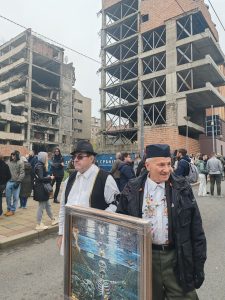


Photo: Protest in front of the General Staff in Belgrade, November 11, 2025.
The 1999 NATO bombing was part of a broader reckoning with the “unruly Serbs,” who had stood on the victorious side in both World Wars and who, as perpetual rebels, do not fit into the globalist agenda.
On November 7, members of the ruling coalition voted to revoke the cultural heritage status of the General Staff buildings by adopting a “lex specialis,” thereby bypassing standard rules of protection, urban planning, and likely public procurement. This is a familiar pattern of conduct by the Serbian regime, which routinely enters into secret investment agreements and then grants them special status, circumventing legal procedures. A previous attempt to remove the protected status of the General Staff through the competent institution—the Institute for the Protection of Cultural Monuments—resulted in scandal after document forgery was uncovered and the director of the institution was arrested.
The entire professional community has expressed deep dissatisfaction with the intention to erase historical memory and transform a cultural monument into a site of leisure and entertainment—contrary to the claims of the American investor. It seems we have fundamentally opposing views on what it means to “respect the past,” or perhaps we simply do not see the past through the same lens.
Meanwhile, media outlets have published details of the agreement, revealing that the American company owned by Trump’s son-in-law will invest $500 million to build a luxury hotel, business center, apartments, and a casino. The investor (Kushner’s firm) will hold a majority stake of 77.5% in the joint venture, while the Serbian side will retain 22.5%. Serbia will cede the entire complex free of charge for 99 years, with the possibility of the lease later converting into ownership. If the state fails to fulfill its obligations by May 2026, the American partner may terminate the contract and seek multimillion-dollar compensation.
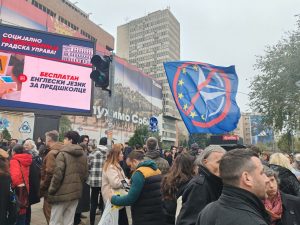
Photo: Protest in front of the General Staff in Belgrade, November 11, 2025.
Since Serbia is ceding the land free of charge and financing the demolition of existing structures itself, the initial costs fall entirely on the state, while the investor enters the project as the majority owner with control over future revenues. A wide range of risks—administrative, property-related, and executive—are borne by the state. Yet it seems the Vučić regime is unconcerned, precisely because those risks fall on the state. By entering into such an agreement, Aleksandar Vučić appears to be attempting to mend relations with Donald Trump, whose Democratic opponents he supported during previous elections.
Can Serbia Survive Imposed Humiliation?
The central question is: can such an agreement even be accepted in Serbia? Is it conceivable that a representative of the country that bombed Serbia could build “new bridges of friendship” precisely at the site of that crime? Is it acceptable that those who attacked our country now further humiliate the Serbian people? And ultimately—should Serbia consent to its own moral capitulation?
If this were to happen, the consequences would be profound: the Serbian spirit would be definitively broken. After that, Serbs would no longer be Serbs.
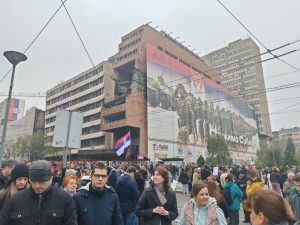
Photo: Protest in front of the General Staff in Belgrade, November 11, 2025.
The motivation of the United States is clear. It still sees itself as the global “cowboy,” demonstrating power across the world. Serbia, as a small country, is likely viewed as too insignificant to deserve the right to determine its own destiny. Through its brutal actions, America seeks to show that it sets the rules of the game. The largest U.S. embassy in the Balkans is located in Priština, in the southern Serbian province of Kosovo and Metohija, which was violently separated from Serbia following the 1999 NATO bombing. The goal of that aggression was to establish control over the Balkans and build the largest U.S. military base in Europe—something Serbia never voluntarily accepted. The second-largest U.S. embassy is in Belgrade, on the grounds of the former Marshalate, once the Serbian army’s communications command center. In this way, key military points in Serbia are being transformed into American geopolitical strongholds, meant to demonstrate power and clearly signal who is in command.
Naturally, one must ask how much influence ordinary American citizens actually have over the behavior of their long-alienated political elites. In the end, this entire investment project was not conceived for the economic benefit of the United States, but to generate private profit for the Trump family. Corruption at the highest level.
Although all this is quite clear, today’s media-political climate in Serbia creates a fog in which everyone has their own “truth,” and reality disintegrates into narratives. Political engineering is directed toward the fragmentation of society in order to prevent unification around common national interests. A false patriotic government and a false opposition further disorient the public. Through media manipulation, false hopes are constantly stoked, which then lead to new disappointments and deeper apathy. There seems to be no way out of this vicious circle, while elections offer only the option of voting for “the one who has already been chosen.” If Serbian society fails to overcome these obstacles, restore unity, and defend its own interests, there is a serious danger that it will lose the right to a future.
Links:
Vučić denies delays or forgery in Kushner’s project in Belgrade – Euronews Albania
Serbia leases ex-army HQ in Belgrade to Trump son-in-law’s firm | ReutersSerbia to build Kushner hotel in former General Staff building – Gazeta Express
Serbian lawmakers pass special law for real estate project linked to Jared Kushner | AP News








